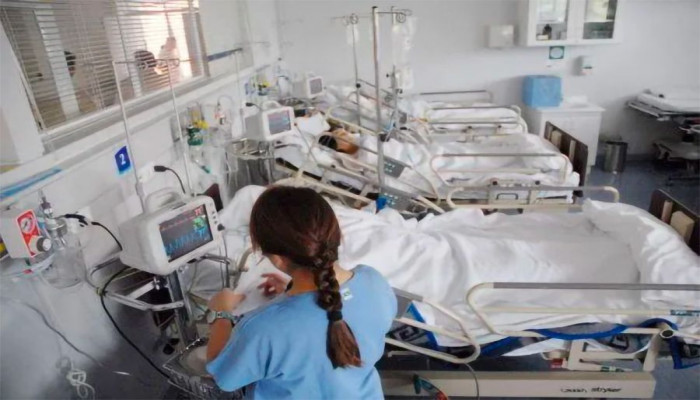Peru imposes 90 days health emergency in response to Guillain-Barre syndrome
- In Reports
- 05:16 PM, Jul 11, 2023
- Myind Staff
Peru's Ministry of Health has announced a 90-day health emergency in response to the rising cases of Guillain-Barré Syndrome (GBS) in the country. The declaration was made following the occurrence of four GBS-related deaths and the identification of over 180 cases, as reported by AFP, a Spanish news agency.
In a Facebook post, the ministry stated, "Government declares health emergency due to unusual increase in cases of Guillain-Barré syndrome." Health Minister César Vásquez expressed the necessity of taking immediate measures as a state to safeguard the health and lives of the population, citing a significant surge in recent weeks.
According to AFP's report, the health emergency is applicable across all 25 regions of Peru.
Guillain-Barre syndrome is a rare neurological disorder characterized by the immune system's attack on the nerves. It typically manifests as initial tingling sensations and weakness in the hands and feet, potentially progressing to complete body paralysis. Hospitalization is often required for the treatment of individuals affected by this condition.
Although the precise cause of Guillain-Barre syndrome remains uncertain, reports indicate that approximately two-thirds of patients experienced symptoms of an infection, such as Covid-19, gastrointestinal infections, or the Zika virus, in the six weeks leading up to the onset of the disorder.
Symptoms of Guillain-Barre syndrome
- Tingling sensation in fingers, toes, ankles, wrists, or sometimes even arms and face.
- Weakness in legs that spreads to the upper body. In some cases, inability to walk or climb stairs.
- Difficulty with facial movements - speaking, chewing, or swallowing double vision, or inability to move eyes.
- Severe pain that may feel achy, shooting, or cramp-like and is likely to get worse at night.
- Difficulty with bladder control and bowel function, rapid heart rate, low or high blood pressure, and difficulty breathing.
- The most severe cases are likely to end up in paralysis.
According to the UK National Health Service (NHS), there is no specific cure for Guillain-Barré Syndrome (GBS), but its symptoms can be treated, and the condition can be managed. Typically, individuals with GBS require hospitalization, often for a period of several weeks to a few months.
The primary treatment options for GBS are immunoglobulin therapy (IVIG) and plasma exchange. IVIG involves administering donated blood that contains healthy antibodies intravenously, which is the most commonly used method for treating GBS.
Alternatively, plasma exchange involves removing the person's blood and passing it through a machine to filter out harmful antibodies that are attacking the nerves. The treated blood is then returned to the individual's body. This procedure typically takes around five days to complete, with the blood being filtered outside the body.
In addition to these treatment options, blood thinners may be prescribed to prevent blood clotting, and individuals experiencing breathing difficulties may receive oxygen support.
Overall, the management of GBS involves a combination of these treatments to alleviate symptoms and support the patient's recovery.
Image source: MercoPress







Comments